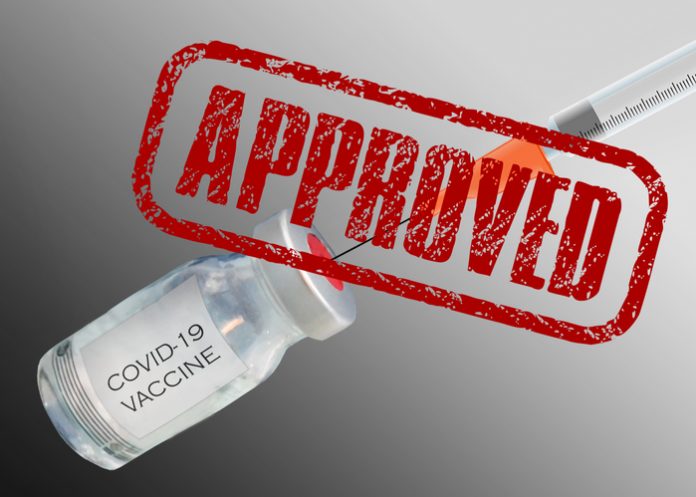Now that 48 percent of the U.S. population has been fully vaccinated, drug makers are taking steps to move beyond “emergency use authorization” and expand the market for their COVID-19 mRNA vaccinations.
The drug makers were blocked at their first hurdle: getting approval for booster shots. On July 8, the U.S. Centers for Disease Control and Prevention (CDC) and Food and Drug Administration (FDA) said there was no need for fully vaccinated people to receive booster shots at this time.
“We are prepared for booster doses if and when the science demonstrates that they are needed,” the agencies stated.
Eager for Approval
In May, Pfizer announced it was seeking full approval for its COVID vaccine, and Moderna followed suit for its vaccine in June.
Full approval would allow drug makers to advertise their products and set their own prices. It could also give schools and employers more muscle in requiring shots as a condition of admission or employment, and perhaps change the minds of vaccine skeptics.
“A third of people who are unvaccinated said that they’d be more likely to get the vaccine if … one of the vaccines received full approval from the FDA,” Liz Hamel, director of public opinion and survey research at the Henry J. Kaiser Family Foundation, told MarketWatch on June 28.
Granting approval for the COVID-19 vaccine would overshadow alternative treatments, says Joel Hirschhorn, author of Pandemic Blunder.
“Right now, use of treatment protocols is facing a tough uphill battle against vaccines,” Hirschhorn told Health Care News. “Once vaccines get full FDA approval, even more people will become motivated to get the jab. They will mistakenly believe that all the safety issues have been fully investigated by FDA and resolved, but that will not be true.”
Concern Among Physicians
Hirschhorn is one of numerous physicians and researchers who say the federal health agencies went out of their way to block existing and inexpensive drugs such as hydroxychloroquine and ivermectin, which have been successfully used to stop the replication of the virus during its early stages.
In an article on July 16 on the alternative media website NOQ Report.com, Hirschhorn presented research he says makes the case against full approval. As of July 9, the CDC’s Vaccine Adverse Event Reporting System listed 10,991 deaths and 191,131 injuries associated with the vaccines, numbers likely underreported based on past history, Hirschhorn writes. There has also been a dearth of research on natural immunity from COVID-19, Hirschhorn writes.
In addition, the censorship of vaccine dissent by social media platforms and the mainstream media should be a big red flag, Hirschhorn says.
“We are in a corrupt world of vaccine fanaticism,” Hirschhorn writes.
Room for Improvement?
It can take nearly a century to get a safe and fully effective vaccine, says Erwin Haas, M.D., an infectious disease expert and policy advisor to The Heartland Institute, which co-publishes Health Care News. Haas cited the whooping cough vaccine as an example, in an article published at American Thinker.
Haas says he does not believe the COVID-19 vaccines have thus far demonstrated sufficient safety and effectiveness to merit full approval.
“The mRNA vaccine trials last fall didn’t show a 100 percent reduction in COVID cases,” Haas told Health Care News. “Cases were greatly reduced, and deaths eliminated. Impressive. But then only one person in the control group died of COVID-19. The trials did not include many older, at-risk individuals, so they ignored the seriously at-risk
“The follow-up in this original series was only two months, so it gave us no information on effectiveness after three, six, or 12 months,” said Haas. “There are numerous reports of breakthrough infections, but sorting out what kind of vaccines, the Delta [variant] confounder, who dies, etc. have not been published, so far as I can tell.”
Haas says the widely praised experience of Israel should be seen as a cautionary tale.
“Israel is cited for its high vaccination rate, but I see that the new infection rate is nearly 1,000 per day, up 192 percent in the last two weeks,” Haas said. “The promise of vaccinations has not yet shown up. That the vaccine manufacturers want to authorize yet more boosters suggests that no one thinks these are all that effective.”
Ready or Not
Not all free-market thinkers agree with delaying the approval of the COVID-19 vaccines.
“It is puzzling why the FDA is taking so long,” said Jeffrey Singer, M.D., a senior fellow at the Cato Institute.
“They have real-world clinical trials in the U.S. of roughly 350 million doses given out without any demonstration of major side effects or adverse events that are out of the ordinary,” Singer said. “In fact, the safety profile is extraordinarily good. It is rare that the FDA has an opportunity to view ‘real world’ effects of a vaccine or drug on such a large population group.”
Singer says the COVID-19 vaccine is in a unique position.
“Ordinarily, it would take years and years to get data on this many millions of vaccine recipients,” Singer said. “I think the FDA should give full approval post-haste, and hopefully this will remove the stigma of ‘experimental drug’ from the vaccine that is keeping many people from getting themselves vaccinated.”
Not So Fast
Hirschhorn disagrees.
“In the entire history of new vaccines in the United States, the levels of deaths and injuries associated with the COVID vaccines would have caused the FDA to take the vaccines off the market,” said Hirschhorn.
“Of course, full approval will make it easier for companies, schools, and colleges to mandate COVID vaccination,” Hirschhorn said. “That coercion has already started, even with an ‘experimental’ label. Such mandates violate medical freedom: the right of people to decide for themselves what medicine or vaccine they want to take.”
AnneMarie Schieber (amschieber@heartland.org) is the managing editor of Health Care News.




















